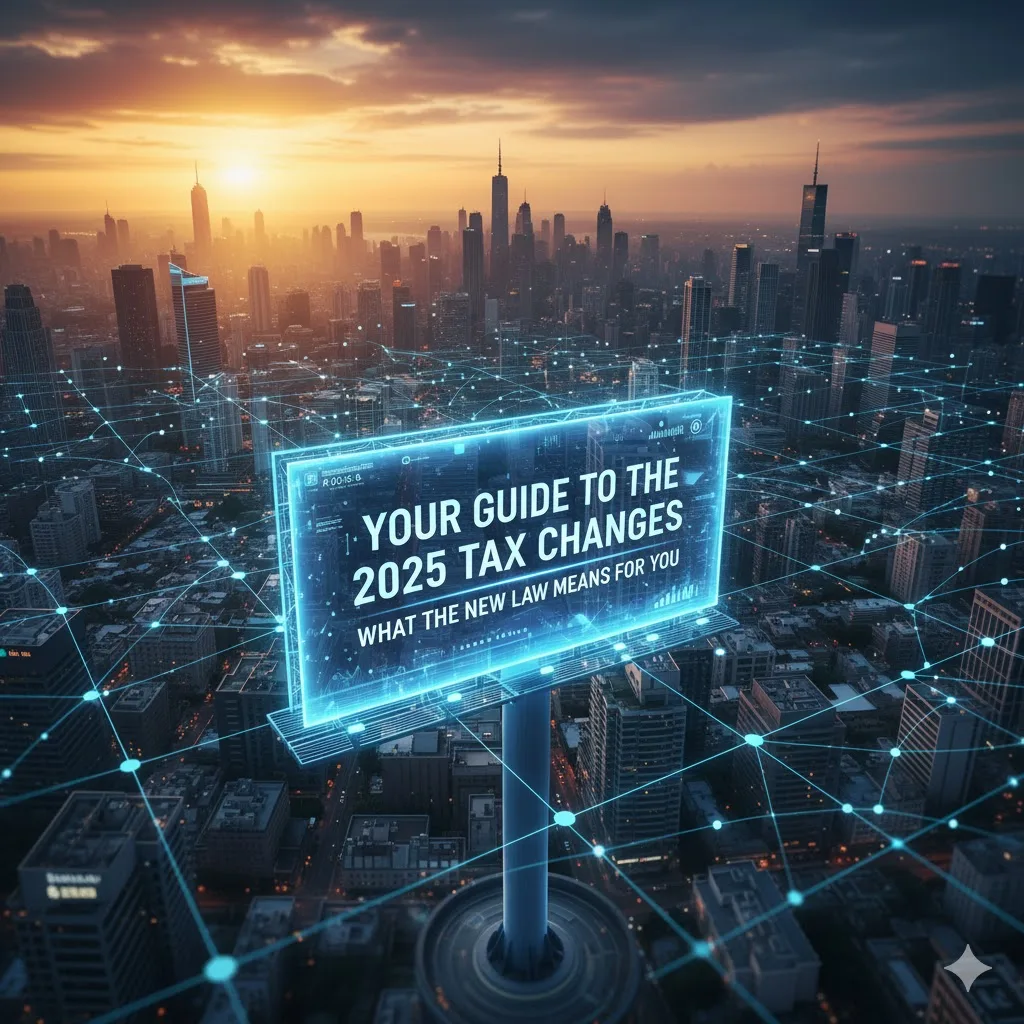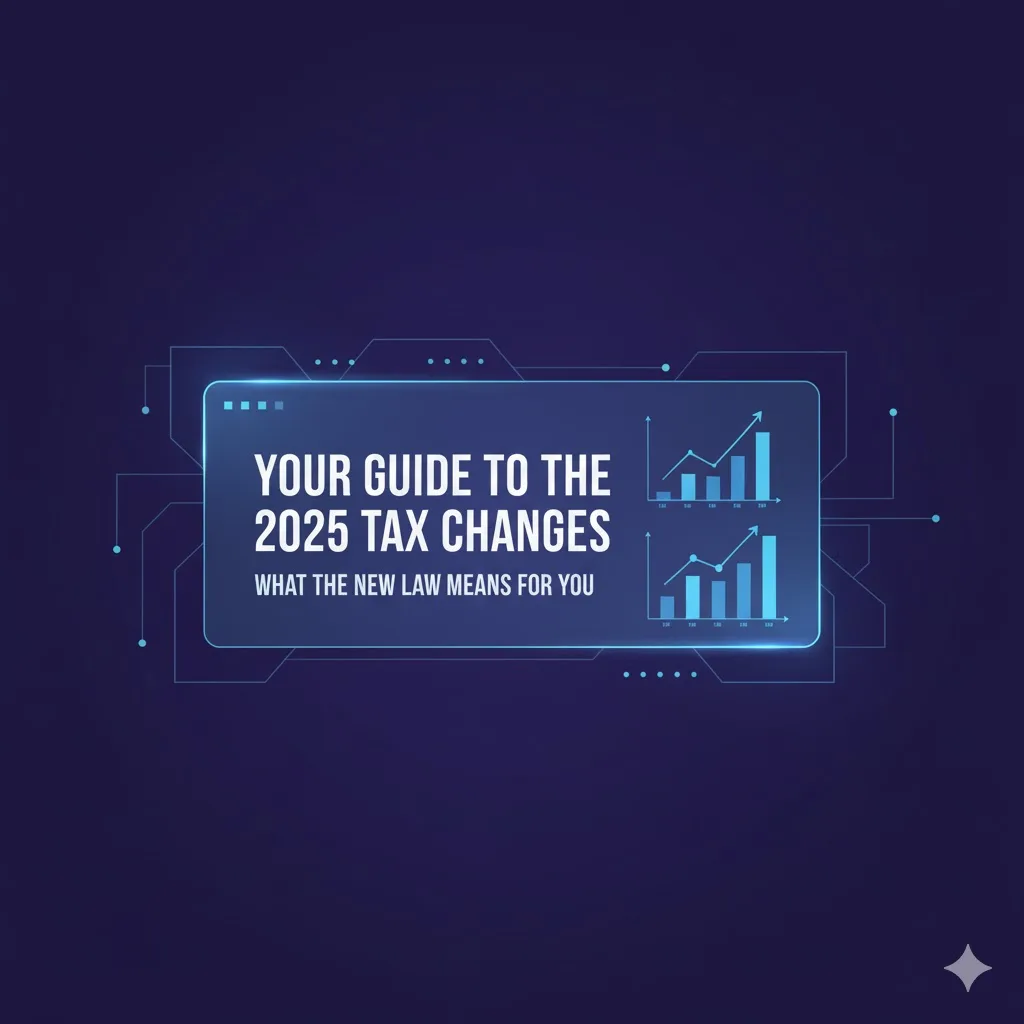A major tax hike was scheduled to hit nearly every American in 2026. This was because the popular tax cuts from the 2017 Tax Cuts and Jobs Act (TCJA) were set to expire. To prevent this, a new law called the “One Big Beautiful Bill Act” (OBBBA) was passed in July 2025.
This new law did two main things: it made many of the 2017 tax cuts permanent, and it introduced several new, temporary tax breaks. Here’s a straightforward guide to what has changed and how it might affect your finances.

Key Changes for Most People
The foundation of your tax bill is based on your tax rate and your deductions. The new law solidifies these in your favor.
- Lower Income Tax Rates Are Here to Stay: The seven tax rates you’re familiar with (10%, 12%, 22%, 24%, 32%, 35%, and 37%) are now a permanent part of the tax code. Without this change, rates would have reverted to higher, pre-2017 levels.
- A Bigger Standard Deduction: The standard deduction is a fixed dollar amount that you can subtract from your income to lower your tax bill, no questions asked. The new law makes the larger standard deduction permanent and gives it an extra boost. For the 2025 tax year, the standard deduction is:
- $15,750 for Single filers
- $31,500 for Married Couples Filing Jointly
- $23,625 for Heads of Household

Tax Breaks for Families and Specific Groups
The new law also includes significant tax breaks aimed at families, seniors, and certain workers. Most of these new breaks are temporary and are set to expire after 2028.
- An Increased Child Tax Credit: For families with children, the Child Tax Credit is a valuable way to reduce your tax bill dollar-for-dollar. The new law increases the credit to $2,200 per child for 2025 and makes the higher income limits permanent .
- A New Deduction for Seniors: If you are 65 or older, you can claim a new deduction of $6,000 ($12,000 for a married couple if both qualify) . This is in addition to the standard deduction and is available even if you don’t itemize. This new benefit is temporary and lasts from 2025 through 2028.
- Tax Relief for Tipped Workers: If you earn tips, you may be able to deduct up to $25,000 of your qualified tip income each year . This is a new, temporary deduction available from 2025 through 2028.
- A Break for Overtime Pay: A temporary deduction is now available for the “premium” portion of overtime pay (the “half” in “time-and-a-half”). The maximum deduction is $12,500 for single filers and $25,000 for joint filers and lasts through 2028.
- Changes to the State and Local Tax (SALT) Deduction: Previously, you could only deduct up to $10,000 in state and local taxes. The new law temporarily raises this cap to $40,000 for 2025. However, this benefit is aimed at middle- and upper-middle-income households and phases out for those with income above $500,000.

A New Era for American Businesses
The OBBBA also made several major pro-business tax cuts permanent, providing long-term certainty for business owners to invest and grow.
- A Permanent Tax Break for Small Businesses: The popular 20% deduction for “Qualified Business Income” (QBI) is now permanent. This is a major tax break for owners of pass-through businesses like sole proprietorships, partnerships, and S-corporations, effectively lowering their tax rate on business profits.
- Full Write-Offs for New Equipment: The law permanently restores 100% “bonus depreciation”. This allows businesses to immediately deduct the full cost of new equipment and machinery in the year they buy it, instead of writing it off slowly over several years. This encourages companies to invest in upgrading their operations.
- Incentives for Innovation: The law also permanently restores immediate expensing for domestic Research & Development (R&D) costs. This reverses a recent rule that required businesses to spread these deductions over five years, making it cheaper for companies to invest in innovation.

What This Means for You
The “One Big Beautiful Bill Act” has created a new and more stable tax landscape. For most individuals and businesses, the law prevents a major tax increase and locks in the lower rates and larger deductions they have become used to.
However, it’s important to remember that while the core tax cuts are permanent, many of the new, targeted benefits—like the deductions for seniors, tips, and overtime—are temporary. This means that tax policy will likely remain a hot topic of debate in the years to come. For now, these changes offer significant opportunities for tax savings as you prepare for the 2025 tax season.


Leave a Reply